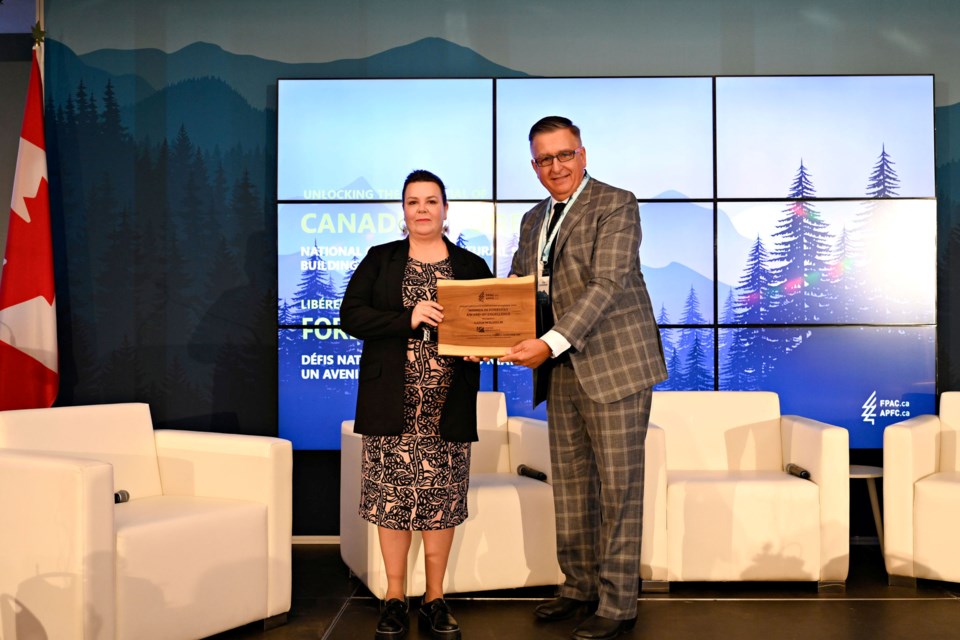
SET-listed Siam Cement Group (SCG), Thailand's largest cement maker and industrial conglomerate, plans to allocate 200 billion baht to develop its businesses between 2025 and 2030, in a bid to make them more eco-friendly and competitive. The company plans to spend 40 billion baht of the budget annually to support businesses, especially those under its key subsidiaries SCG Chemicals and SCG Cleanergy, which offers clean energy solutions, said Thammasak Sethaudom, president and chief executive of SCG. "We focus on these businesses as they promise sustainable growth, in line with our inclusive green growth mission," he said.
Under inclusive green growth, SCG wants to become an agile organisation, encouraging staff to come up with new business ideas and green innovations. The company also wants stakeholders as well as businesses along supply chains to achieve a low-carbon society together under the inclusive growth concept. Developing environmentally friendly and high value-added products is important for SCG to deal with a number of challenges that can affect the company's businesses, said Mr Thammasak.

They include slow economic growth in Thailand, the impact of trade wars and geopolitical conflicts, the influx of low-cost products from China into the Thai market, and the EU's carbon border adjustment mechanism policy. COST CONTROL Selecting raw materials with a reduced risk of price fluctuations is among the factors expected to help drive the growth of the chemical business, especially that of the Long Son Petrochemicals complex in Vietnam. The company plans to use more ethane -- a colourless, odourless, gaseous hydrocarbon -- as a raw material to reduce its dependence on naphtha, which is a product of fossil fuels.
"This will allow us to better control the costs of raw materials and mitigate the impact of their price fluctuations," said Mr Thammasak. Crude oil prices remain volatile, affecting naphtha prices which eventually lead to expensive raw materials, said Sakchai Patiparnpreechavud, chief executive and president of SCG Chemicals. "Naphtha prices currently stand at US$650-700 per tonne, compared with ethane which is sold at $300 per tonne," said Mr Sakchai.
"Using ethane means we can significantly save costs." SCG Chemicals plans to buy 55,000 tonnes of ethane from the US to supply to Long Son Petrochemicals by 2027. The amount is set to increase to 200,000 tonnes by 2029.
The company will use more ethane, along with naphtha and propane, as key raw materials. The average price of ethane has been 40% lower than naphtha and propane over the past three years. Using more ethane will also support the company's plan to reduce carbon dioxide emissions, said Mr Sakchai.
Revenue from SCG Chemicals currently makes up 39% of SCG's total revenue and is expected to increase to 60-70% if earnings from Long Son Petrochemicals are included. Located in Ba Ria-Vung Tao province in southern Vietnam, Long Son Petrochemicals, currently under a performance test run, will produce high-quality plastic resins for the global market. CLEANERGY The clean energy business, operated by SCG Cleanergy, is expanding in terms of electricity generation capacity, targeted international markets, and the development of new energy products.
The company is seeking investment opportunities to expand the business into Asean countries, including Vietnam, Indonesia and the Philippines. SCG Cleanergy is focusing on wind and solar energy solutions, including rooftop solar panels, with the goal of increasing its renewable power capacity to 3,500 megawatts by 2030, said Mr Thammasak. The company is constructing a "heat battery" unit for clean energy storage, specifically designed for the cement industry, at SCG's cement plant in Saraburi.
Also known as thermal energy storage, the heat battery can convert electricity produced by solar panels into heat, which can be stored for use by factories when it is needed. SCG Cleanergy also reinforces its capabilities through investments in technology companies, including one that develops Tandem Perovskite solar cell technology, which can reduce the production cost of solar cells, making clean energy more accessible to the industrial sector. With help from SCG Cleanergy and SCG Chemicals, Mr Thammasak said he was confident that SCG would overcome its challenges to reach its inclusive green growth goal.
.














